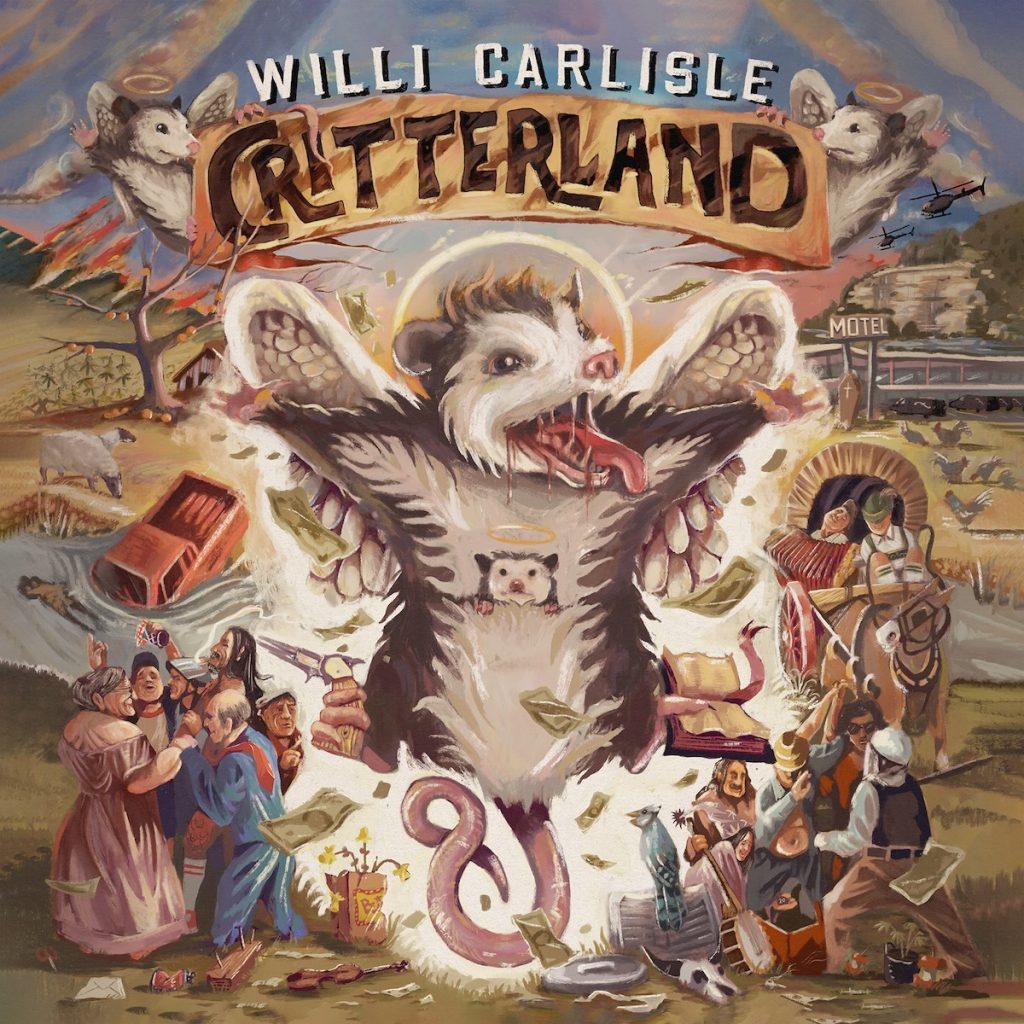ALBUM REVIEW: Willi Carlisle Carves a Welcoming Path Into ‘Critterland’

When the youth use the phrase “say it with my whole chest,” it means that they are speaking sincerely. For Willi Carlisle, this metaphor applies with all its meanings: Declaiming like a medieval bard on his evocative new album, Critterland, Carlisle finds the union between his past life as a poet and his current role as a troubadour. Producer Darrell Scott ensures that Carlisle’s voice sits squarely in the center of the mix, backed by spare guitars with occasional flourishes of mandolin, fiddle, or steel guitar. Carlisle populated his previous albums with strange characters and tales that highlighted the string of absurdities that form a person’s life. On Critterland, Carlisle steps into the spotlight, reflecting on his own peccadillos and victories, however small.
Carlisle is in full command of his quirkiness on the title track, an album opener that sings the praises of an intentional community he once lived in, celebrating the joys of embracing his contrary nature and the outsider tendencies of his chosen family. “I Want No Children” holds a tinge of melancholy, but it’s also a commitment to knowing what one wants and why they want it. More importantly, it asks us to question some of our fundamental assumptions about parenthood, sovereignty, and how we relate to the world around us. The fierce “Higher Lonesome” embraces the peculiar sense of isolation and love that comes from touring: the long hours on the road and the assurance that there is a wide network of people ready to love you once you get there.
Yet choosing the road less traveled exacts a heavy price. Addiction and suicide are this album’s cornerstones. “When The Pills Wear Off,” co-written with Billy Keane, finds Carlisle examining a youth of addiction and debauchery and mourning the people who are no longer with us, the people who do not have the luxury of learning from their mistakes. The arresting “Jaybird” is darkly humorous; Carlisle notes that the cops could not understand the “big words” in his friend’s suicide note.
In spite of it all, Carlisle asks us to find victory in the mess. “The Great Depression” is a praise song to our ancestors who, like us, found themselves deserted by leaders who sacrificed the poor in favor of shoring up the interests of the wealthy; people who scrapped and fought and died and laughed and became our great-grandparents and grandparents. Just as they carried on, Carlisle exhorts us, so must we. We must continue to search for love and solidarity so we can be heroes to future generations.
Carlisle ushers us out of Critterland with “The Money Grows on Trees,” a seven-minute spoken-word ode to the writer David Mac. Mac allegedly cut a deal with the local sheriff to share the profits of an illegal weed-growing operation in exchange for some legally sanctioned use of force. Carlisle uses Mac’s voice to revel in the joys of capital and honest work – and questioning why these underhanded tactics are legal for wealthy businessmen but not for “hippies, hillbillies” out in the backwoods. Mac makes for an ersatz hero who goes out on his own terms, but in telling his story Carlisle invites us to consider the price of admission to the freewheeling world of Critterland.
Willi Carlisle’s Critterland is out Jan. 26 on Signature Sounds.



